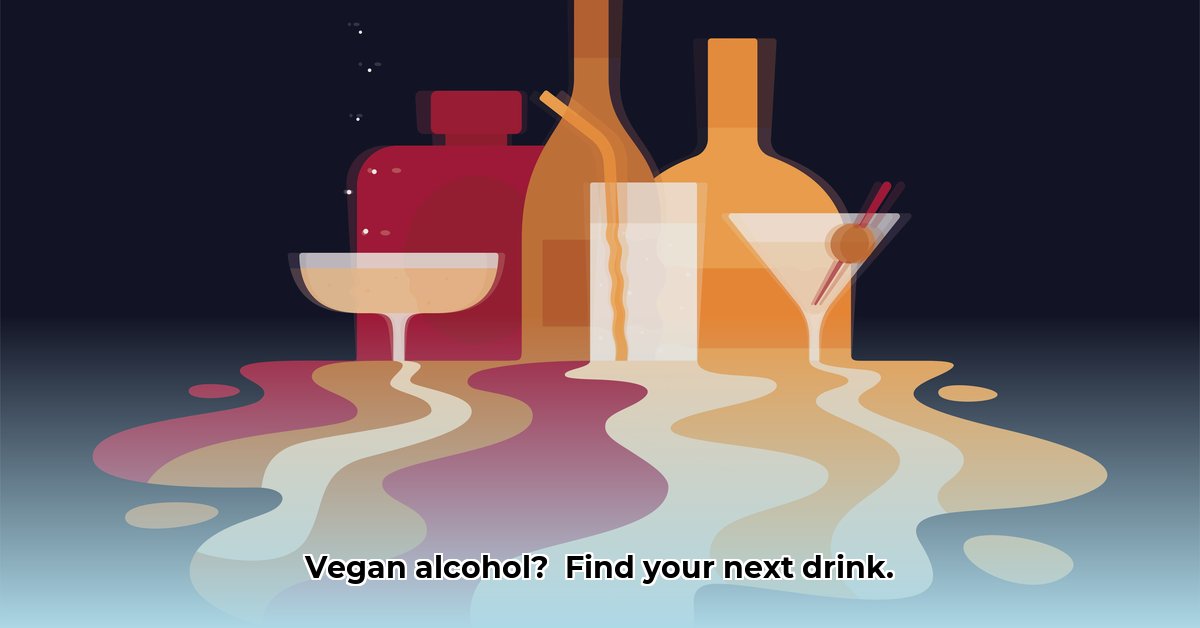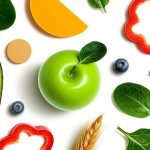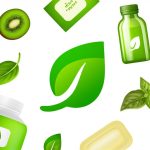So, you’re vegan and love a good drink? Awesome! But finding truly vegan alcohol can feel like a scavenger hunt. Don’t worry, we’ve got you covered. This guide will walk you through everything you need to know to find delicious, plant-based booze, from decoding confusing labels to spotting sneaky animal products. We’ll even show you how to become a vegan alcohol expert and make sure your next drink is both tasty and cruelty-free. For more Canadian alcohol options, check out this helpful resource: Canadian alcohol guide. Let’s raise a glass (a vegan one, of course!) to a guilt-free good time.
Alcohol and Plant-Based Diet: Your Guide to Guilt-Free Sipping
So, you’re embracing a plant-based lifestyle, and you’re wondering about alcohol? It’s more straightforward than you might think, but navigating the world of vegan-friendly drinks does require a little detective work. Let’s break it down and make finding your perfect plant-based beverage a breeze with this guide to plant based alcohol consumption.
Uncovering the Hidden Animals in Your Drink: It’s All About the Process
Believe it or not, the base ingredients of most alcoholic drinks—grapes for wine, barley for beer, agave for tequila—are naturally vegan. However, the journey from raw ingredients to your glass can introduce some unexpected animal products. The culprits? Fining agents. These are substances used to clarify and stabilize the final product, giving it that sparkling clarity we all love. Unfortunately, traditional fining agents often include things like isinglass (from fish bladders!), gelatin (made from animal collagen), casein (a milk protein), or even egg whites. You probably wouldn’t expect to find these in your drink, and that’s the problem – they often aren’t clearly listed on the label. Finding vegan alcohol means becoming a bit of a detective and understanding the beverage production process.
Imagine this: you buy a bottle of wine; the grapes are completely plant-based, but during processing, a fining agent derived from fish is used. This makes your otherwise delicious wine non-vegan. It’s a sneaky detail many companies don’t highlight, making it difficult for consumers following a plant-based diet to make informed choices. Even simple beers and wines can secretly contain these animal products. The lack of consistent labeling across different countries and brands makes it even more complicated to determine which drinks are truly vegan. There’s currently no single, universally adopted standard for labeling, leading to a lot of guesswork. Let’s simplify this process!
Decoding the Labels: Your Step-by-Step Guide to Vegan Alcohol to decode alcohol ingredients
Here’s a simple, actionable plan to help you navigate the world of vegan alcoholic beverages:
Step 1: Become a Label Sleuth: Scrutinize that label! Look for anything that mentions fining agents, clarifying agents, or any other animal-derived ingredients—even honey or milk. Don’t just glance—really examine the small print! Be especially cautious of terms like “natural flavors,” as they can sometimes conceal non-vegan additives.
Step 2: Look for Vegan Certifications: Many reputable companies now proudly display vegan certifications on their products. These certifications indicate that the entire production process is free from animal products. Look for symbols from well-known organizations like Vegan Action or the Vegan Society specifically related to alcoholic beverages to ensure authenticity when checking certification standards.
Step 3: Ask the Experts (Directly!): If the label is unclear, don’t hesitate to contact the producer or company directly. They’re the best source to confirm the vegan status of their product. A simple email or phone call can provide you with a definitive answer. When contacting the company, be specific about your concerns regarding fining agents and ask for a complete list of ingredients used in the production process.
Step 4: Harness the Power of Online Resources: Several websites and apps specialize in helping consumers find vegan-friendly drinks. These resources are incredibly helpful and can save you a lot of time and effort. Reliable sources include Barnivore, Vegan.com, and crowdsourced lists on vegan forums.
Step 5: Be a Vocal Advocate for Change: Support companies that are transparent about their ingredients and production processes and actively use plant-based alternatives. By supporting these companies, you encourage more companies to adopt clearer labeling and ethical practices, ultimately making things easier for everyone! Leave reviews, post on social media, and let companies know that vegan options are important to you.
Spirits: Your Simplest Vegan Choice (Usually)
Generally speaking, distilled spirits like vodka, gin, rum, tequila (with the exception of some mezcals), and whiskey are your safest bets. The distillation process naturally removes or significantly reduces animal byproducts. However, it’s crucial to always check the label carefully, as some flavored spirits might have non-vegan additions. Look out for cream liqueurs, honey-infused spirits, and those with added colorings or flavorings, as these are the most likely culprits for non-vegan ingredients.
Beer: Beyond the Froth for vegan beer lovers
Many mass-produced beers are vegan-friendly, but don’t take it for granted! Always check the label. Some craft breweries, in their pursuit of unique flavors, might use fining agents or other non-vegan ingredients. Look for labels that explicitly state “vegan” or “vegetarian.” Don’t assume! Cask ales, milk stouts, and honey beers are often not vegan.
Wine: A More Complex Grapevine for wine lovers who are plant-based
Wine can be trickier. Many wines use animal-derived fining agents to achieve that crystal-clear appearance. However, there’s a growing trend toward using plant-based alternatives like bentonite clay, activated charcoal, or pea protein. Therefore, checking the label becomes even more critical. Organic wineries often prioritize transparency and are more likely to use vegan-friendly practices. Wines from regions known for natural winemaking practices, such as some wineries in France and Italy, may also be more likely to be vegan.
Beyond the Bottle: Responsible Enjoyment
Even if your drink is vegan, remember mindful consumption. Alcohol, regardless of its source, can still impact your overall health and the absorption of nutrients, even in a well-planned plant-based diet. Moderation is key. Enjoy your drinks responsibly! Be aware of the potential for increased hangover severity on a vegan diet due to potential deficiencies in vitamin B3 and zinc. Consider supplementing with these nutrients or consuming foods rich in them.
Vegan Alcohol: A Quick Reference Table
| Beverage Type | Generally Vegan? | Potential Non-Vegan Additives/Things to Watch Out For |
|---|---|---|
| Spirits | Usually Yes | Be mindful of flavored varieties, cream liqueurs, check for additives on label. |
| Beer | Often | Many craft beers may use non-vegan fining agents; cask ales, milk stouts and honey beers are often not vegan; always check the label. |
| Wine | Increasingly | Always check for fining agents; look for certifications or contact winery. |
Remember, transparency is crucial. By choosing brands that are upfront about their ingredients and production methods, you’ll enjoy your drinks guilt-free while staying true to your plant-based lifestyle. Cheers to ethical imbibing!
How to Identify Truly Vegan Alcoholic Beverages
Key Takeaways:
- Distilled spirits are usually vegan, but beers and wines often aren’t.
- Many alcoholic beverages use animal products (isinglass, gelatin) for clarification.
- Check labels carefully. Look for certifications and ingredient lists.
- Utilize online resources like Barnivore to verify vegan status.
- Contact producers directly if you have questions.
- Support companies committed to transparency and vegan practices.
- Be aware that the absence of a “vegan” label does not always mean the product is not vegan.
Deciphering the Labels: Your First Step in How to Identify Truly Vegan Alcoholic Beverages
So, you’re committed to a plant-based lifestyle, but you also enjoy a glass of wine or a craft beer now and then. How do you navigate the world of alcoholic beverages and ensure your drink aligns with your values? It’s easier than you think, but it requires a bit of detective work. The first step is reading labels meticulously. Look beyond the catchy marketing – you need to scrutinize the ingredients. While many hard liquors (vodka, gin, rum, tequila) are inherently vegan unless additives like honey or cream are included, beers and wines demand more attention. Pay close attention to any small print or fine details that may indicate the presence of animal-derived ingredients.
The Sneaky Finings: Why Some Drinks Aren’t Vegan-Friendly
Many winemakers and brewers use fining agents to clarify their products. These agents are added to remove sediment and improve the drink’s clarity. The problem? Some common fining agents are animal-derived, including isinglass (fish bladder), gelatin, egg whites, and casein (milk protein). These ingredients, often not explicitly listed, render the beverage non-vegan. Be aware that some fining agents are removed during processing and may not be listed on the final product label, which makes it even more important to research the production methods.
Beyond the Bottle: Online Resources and Producer Contact for plant-based dieters
Not all producers are transparent. Even if a label doesn’t specifically state “vegan,” it might be. However, unclear labeling is a common hurdle. This is where online resources become invaluable. Websites like Barnivore ([https://www.barnivore.com/](https://www.bar
- Why Am I Always Thinking About Food? Your Body and Brain Explain - February 2, 2026
- Healthy Eating Is About Quality, Not Just Calories - February 1, 2026
- Healthy Living Products to Elevate Your Wellness Routine - January 31, 2026










